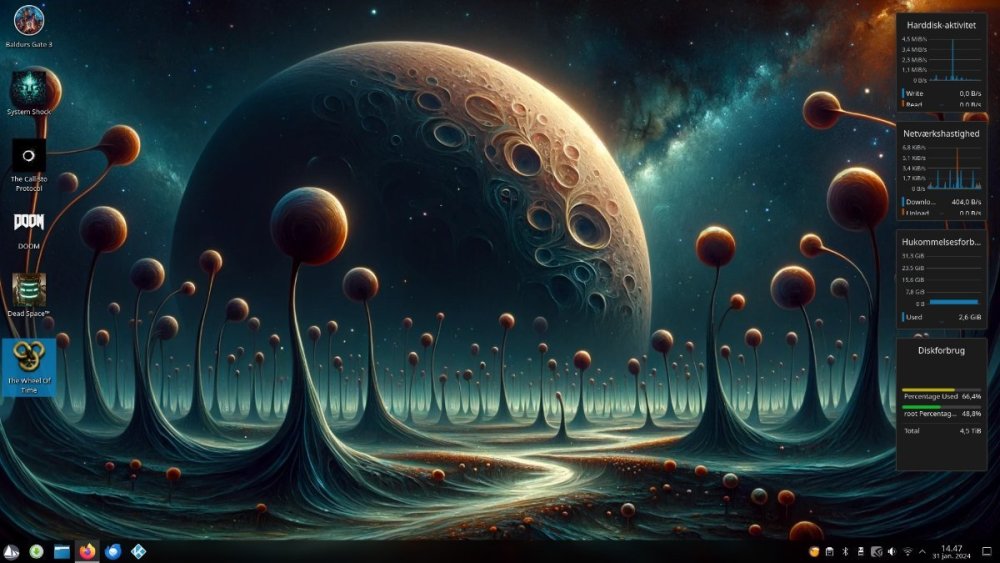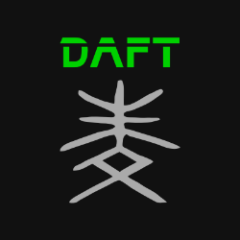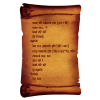Search the Community
Searched results for '/tags/forums/problem/' or tags 'forums/problem/q=/tags/forums/problem/&'.
-
Having an issue with areas and ambient sounds
demagogue replied to Skaruts's topic in TDM Editors Guild
Since it's a one-off problem, only for the first ambient at game start, then the way you fixed it is really the right way, because the system-level alternative would be whole a little subsystem (a specialized fidelay and mandatory _z soundshader) just to handle the first 0.1 seconds of game start, and then the old system for all the maps already out there, which is a bit much. And I think it's not even that common because many ambients start quietly to begin with. That said, there might be an easy bit of code that could make sure the fade in always works for the first ambient that doesn't mess with anything else in the system, like a hardcoded initial 0.1 sec. delay only for it, and that may be worth doing. But it'd need experimenting and testing to make sure it works as intended and doesn't have unintended consequences. Anyway, it's good we have this documented for now as the way to fix the problem for other people in the future that run into it searching for a fix. In fact it'd be good to put in the wiki to make sure the fix doesn't get lost. -

Fan Mission: One Step Too Far, by Dragofer (2014/08/04)
nbohr1more replied to Dragofer's topic in Fan Missions
Thanks! I guess that was a red herring. The problem happens due to a change made in source rev 10498: May I kindly ask that you nudge the player start position? It seems the current start position relies on incorrect physics and stgatilov does not want to revert to the incorrect behavior. Edit: Looks there may be a "code side" fix after all. -

Having an issue with areas and ambient sounds
Skaruts replied to Skaruts's topic in TDM Editors Guild
I think the issue was that I was using a zoned approach with non-zoned sounds. I switched to the *_z variations of them and the problem seems to be gone. Although, for some reason it seems I still need to have fidelay 0.1, which is probably a sign that there's still something wrong. @demagogueIt took me a while to notice the _z sounds are in a separate folder, though... I had no idea what you were talking about when you mentioned them. Now I do. @peter_spy it's hopefully fixed in the latest, which I just released a couple hours ago. -
Is there something wrong with the forums lately, or is it my browser? I've been having trouble formatting posts, and just now I couldn't format anything at all.
I'm using Vivaldi.
Usually I have to: select text, click bold, nothing happens, select again, click bold, then it works.
Same for other stuff, like creating spoilers, bullet points, links. Nothing works the first time.
-

I have no problem. I use Firefox. @Zerg Rush also uses Vivaldi. Have you tried without extensions, or in another browser?
(btw. bold, italic and underline have shortcut keys: Ctrl B, Ctrl I and Ctrl U, you could try that)
-
-
So heres is the beast up and running the app in the screen is KDE Connect SMS in case you were wondering. Only problem so far is one i had with several distros... the wifi driver for the broadcom BCM4360 is inherently unstable at times and does not even get close to the speeds it is capable of on windows 1.3gb vs 135mb yuck it also has a habit of random disconnects when moving a lot of data so not really a good wifi card to pair with it, sadly it is built in to my mainboard and i dont have a spare atm. as for gaming the titles you can see in the screenshot all run quite fine with some performance deprecation due to being windows games but i have to say proton has come a long way allready. older games are actually more irritating to get running sometimes, timeshift outright crashes and i have had no luck getting it to run yet, wheel of time runs but required some tinkering because the gog version uses a ddraw wrapper for the quicktime video codec so i had to make some alterations with lutris environment variables to get it running. eg. go into runner options DLL Overrides add a new key containing ddraw in field one and n,b in field two. this tell wine that the game uses its own ddraw.dll and to not touch. lutris strangely also set the game executable to the quicktime player so i had to correct that .
-
Looks like we have one physics based regression? Linux users get stuck at the start of mission "One Step Too Far" : Bisecting... mission works on 2.12 dev binary 10370 works on 10455 broken on 10518 works on 10488 Something between 10488 and 10518 caused the problem Compiling binaries: Rev 10498 is also broken 10491 works 10494 works 10495 works 10496 works 10497 works 10498 still broken. WINNER If I revert this change, the problem is fixed: original : vel += (vel * gravityNormal) * gravityNormal; 10498 : vel -= (vel * gravityNormal) * gravityNormal; Maybe ifdef it for Linux @stgatilov ?
-
I can see that as a design choice, but the practical problem is pretty striking: If you're looking at a readable and an AI mutters something nearby, the subtitles will cover the text on your readable. It's the game's equivalent of someone putting their palm in front of your face while you're reading a book. Since subtitles are secondary, layering behind readables would make sense... or even better, disable subtitles while readables or the inventory menu are open.
-

libxml2 problem on Linux
OrbWeaver replied to OrbWeaver's topic in DarkRadiant Feedback and Development
Well I think I've gone as far as I can with this but libxml is simply not doing what it's supposed to. I can put code like this in the Game constructor: auto games = GlobalRegistry().findXPath("//game"); assert(!games.empty()); // SUCCESS assert(games[0].getAttributeValue("name") == _name); // SUCCESS assert(!GlobalRegistry().findXPath("//game[@name='" + _name + "']").empty()); // FAIL The "//game" node is there, it has an attribute "name" with value "Doom 3 Demo" (or whatever the first game to be loaded is), but passing that exact name string back to an XPath query using the [@name='blah'] syntax just doesn't work, even though it used to work fine, and should work according to the XPath specification. I even dug down into the Document::findXPath function to see if something was being set in one of the C structures to indicate what is going wrong, but even though there is a lastError struct, it is empty. If there is any indication of the problem, it is buried deep within impenetrable and poorly-documented C structures. So, I am done with libxml and will look at C++ alternatives. If we were going to integrate this, what is the best way of doing so? I seem to recall from previous discussions you would prefer not to have git submodules linked into the repo, and it looks like pugixml is just one .cpp and one header file, so I guess the simplest approach is just to download the files and add them directly to the build in a suitable directory (like we do with the libfmt library). -
Would you mind adding "tdm_show_viewpos" to the list? Also, would you mind adding "screenshot_viewpos" and "screenshot_viewpos <gamma>" to Reporting Problem?
-
Having an issue with areas and ambient sounds
demagogue replied to Skaruts's topic in TDM Editors Guild
This is a different issue than the click of sound at the start of every transition that I was talking about in earlier posts that you're referencing. This may be a problem that's always been there but nobody really noticed or commented on it, or maybe only for certain ambients? So the first problem is that the ambient starts abruptly at game start presumably because the sound system isn't online yet to process the fade in, and it just starts the ambient at full sound. So then you added a delay, but since you're not coming off of a previous fade out to sets the volume to zero, it plays the full volume ambient through that delay and then cuts to zero and fades in. My idea is that if you want a fade in from the start, don't start with that ambient as it is. Start with a .1 second of silence, and then fade in the ambient. There are two ways I can think to do that. (There might be other ways.) 1. Some ambient soundshaders start with a "leadin" spawnarg that starts it with a bit of silence, originally used to stop the click of sound (soundshaders ending in "_z", there were two versions, one with and one without the _z, unless that was later changed). You could confirm that the soundshader for that ambient uses a "leadin" arg, or if it does but it's not long enough, maybe use a custom soundshader to use a longer leadin blip of silence. (In that case you'd have to make the longer silence file yourself.) 2. Or another possibly easier way may be to start with an "override" sound, look at the Sound Override part of the tutorial with silence, and then after .1 second or whatever, transition that to the normal location-based ambient according to the instructions, and then the override sound will fade out and yours will fade in. I think you'd do that by setting the override arg to "1" from the start and then change it back to "0" after 0.1 seconds using Target_setKeyVal as the instructions say. Confirm that the "silence" sound is stereo. I noticed if you start it with a non-stereo sound, the system stays non-stereo. I think that was fixed, but good to double check. If it isn't, then you could do the same thing with a normal ambient that just starts off silent or very quiet for that first .1 second. -
Solus and SteamOS are not the same https://www.slant.co/versus/2694/2714/~steamos_vs_solus Solus is actually better according to reviews hehe. And true OpenBox is a bit limited but i find it to be an ok alternative if you develop something from the ground up like NomadBSD. BSD does not have a lot of active desktop Operating Systems but NomadBSD is quite nice though minimalistic. It uses OpenBox and the desktop is in the mac style, originally it used an XFCE port and there are still some traces of XFCE apps left -> atleast one i know of because if you try to access the color composer in the file manager it complains about the lack of several XFCE libraries minor whoopsie on the developers part i reckon since that part is now handled by OpenBox. Despite this it works fine and is mostly used as a live OS to boot from usb. had a bit of a problem with it on this PC though as it seems to have problems with my hardware making it slower than molasses to boot. An alternative is GhostBSD which is a more complete desktop for BSD using MATE. It unfortunatly does tend to break quite often, and the package manager seems a bit out of date which might be because a lot of the desktop system was ported from linux and the newer ones have not quite catched up yet on BSD. Despite this i find the BSD kernel to be great, it focusses a lot more on security than most linux kernels and the main BSD distros tend to be quite stable (FreeBSD NetBSD OpenBSD etc.) you can still install a desktop on say FreeBSD if you know how to hammer it all together so that it boots into the desktop but for the most part the main BSD's are shell only.
-

libxml2 problem on Linux
OrbWeaver replied to OrbWeaver's topic in DarkRadiant Feedback and Development
I did some debugging in unit tests. The first problem is that although we have a basic XmlTest, it uses the full RadiantTest fixture which can only be constructed if the XML registry is working fine, so these basic XML tests are not runnable. I managed to fix that by changing the behaviour (on Linux only) to use TEST_BASE_PATH instead of _context.getTestResourcePath() to find the test resource files, so that RadiantTest is not required. This confirmed that the basic functionality of loading XML is working perfectly fine, even with the switch to xmlReadFile(). All of the XML tests pass, and I can load one of the game files in a unit test and examine its properties. So there is nothing fundamentally wrong with the XML structure being created by the new function call. The problem seems to be that within the Game class, any attempt to look up key values in the registry fail. Although each Game class is constructed successfully and imports its content, any searches for its own XPath root (e.g. "//game[@name='Doom 3 Demo']") return a list of 0 nodes, even though that exact XPath string can be used successfully within the basic XML test to find the <game> node which was loaded directly into an xml::Document. So there must be something going wrong with either when or how the .game file content is being merged into the global registry hierarchy. -

Darkradiant doesn't open for me
OrbWeaver replied to 7318's topic in DarkRadiant Feedback and Development
I very much doubt it. You are building from source on Ubuntu whereas demagogue is reporting a problem with the released Windows build. I believe your error is the same one I encountered here: This error is triggered by a change in Greebo's repo which I haven't yet merged, so if you build from my repo you should avoid this issue. -
For an as-yet unknown reason, this commit seems to break XML parsing on Linux: #6439: Use xmlReadFile instead of xmlParseFile which has been deprecated and removed. Privatise Document() constructor accepting an xmlDocPtr. As far as I can see, the commit is entirely correct. xmlParseFile is indeed deprecated, and the new usage of xmlReadFile matches what the libxml2 examples are suggesting. But the result is that although the xmlDoc* returned from the function is not NULL, nothing XML-related works, the entire registry system returns only empty values, and almost all of the tests are broken (because the main radiant core cannot be initialised without any registry values available). Changing back to xmlParseFile makes the problem go away but is an unsatisfactory solution because it specifically reintroduces a deprecated function call. I am not sure whether this is a bug in the specific version of libxml2 on my Ubuntu system, or something incorrect about how we are calling xmlReadFile (i.e. perhaps it requires an encoding or a particular non-default option to correctly process our XML files). Unfortunately like many of the core GNOME C libraries, the documentation is bare-bones and explains almost nothing (like what any of the parsing options actually mean), and I cannot see an obvious way to ask libxml2 to return meaningful errors, or to query exactly what might be wrong with a constructed xmlDoc* object. It makes me wonder if it would be better in the long term to ditch the reliance on libxml2 and instead use one of the light-weight C++ XML parsing libraries like RapidXml or pugixml instead. Not exactly a trivial change but might not be too cumbersome since the existing XML code is wrapped in our own xmlutil classes and not generally used directly by the rest of the codebase.
-
I think you mean Reshade. I used it a couple of times, it has a few interesting tricks up its sleeve Also, maybe this will help to illustrate the problem better: As you can see with image 2 & 4, the geometric complexity, whether with actual polygons or faked via smooth edges on normalmap, does matter. And I bet when most users think 'fresnel', they mean the last example. Most TDM geometry is brushes and models textured with simple tiling materials. They won't look like the last example, until they have enough polygons.
-
yeah win11 is not that different from win10 except for some rather ludicrous hardware expectations like cpu and tpm. i can get behind the tpm requirement though truth be told one could use an usb stick for the same (storing encrypted keys), but the cpu requirement is kinda fubar since i use a gen 4 for running win10 with no problems whatsoever and it also runs 11 just fine despite not being on the approved list. sure you can fool win 11 to install on it but there are no guarantees that microsoft wont disable that down the line so no thanks :). manjaro was one of my earlier favorites in the linux world, sadly the last time i tried it, it would not play ball with my hardware and also had a bit of the same problem most other mainstream distros have where you could install stuff not native to the kernel and hence break everything, i find what solus did to be gratifying since a lot of people who have not grown up in the linux world and who are not able to identify and correct these annoyances should feel more at home. sure theres still a bit of reading to be done but you dont need to be a rocket scientist to use it
-
So id recently started dablling with linux derivatives as a main OS again after holding off for years due to some problems running my hardware when i stumbled upon Solus. Solus is a distro that was developed independently from mainstream linux (from the ground up) and uses its own desktop model called budgie (also comes with a plasma gnome and XFCE dektop). Solus uses its own package manager called eopkg and it handles flatpak and snap as well. I been very impressed with it so far as things just worked out of the box for most parts, only real problem i had was getting steam running which turned out to be due to my machine loosing internet connection when it was installing it which left some broken files and after an uninstall / reinstall it worked quite nicely. one warning though Solus comes with a linux steam integration tool which while cool has a rather annoying bug if you try to use the intercept library no games will launch (well alledgedly one will and it was made for that because it wont launch without it on groan...), so do not enable that setting. lutris also works pretty much from the get go though i had to do some reading to find out how to get it to synch up with steam (steam profile must be set to public in pretty much everything). So how does games work on it, well actually rather well proton has made strides in getting even the newest games to run on steam and the only games i so far have not been able to run is the division 1 and 2 but this a'int a problem with steam but with ubisoft connect which crashes and might get fixed in the future (damn launchers...). So far i been plaing baldurs gate 3, callisto protocol, crysis remastered trilogy, DOOM, starfield and a wealth of older games with it and no problems besides having to run baldurs gate in DX11 mode (not really sure why the vulkan driver is not working for this game on linux ???). I might actually step onto the linux platform for good when win10 goes out of support, and ill probably stay with solus since it is less cluttered than most other distros and main packages are built explicitly for it which again means stability as you dont get puckered into installing something which was newer meant for your OS (yeah i f.... up numerous linux distros over the years because you can install pretty much what you like even if it breaks everything, not so with Solus). This does not mean you cant have some nice app you need which was built against say gnome because you sit on a plasma desktop, you absolutely can but they are only avaliable as snap / flatpaks so each of them run in its own sandbox with all the dependencies only avaliable to said program and keept isolated from the system. try it out :) https://getsol.us/download/
-
People who don't like them can disable them and leave only Story subtitles On. I think we should move all the "(sign)" and "(clear throat)" to Effect level and add one more level to the menu. I definitely don't need to see them on my screen. Finally, some volume cutoff is needed I think. The problem with implementing it right now is that the engine does not determine effective volume. If you look at alpha of location ring (which is volume based), it is very different in the New Job conversation (about girls behind inn). I hope to fix this in some future...
-
To cater to both audiences. I mentioned LibreGameWiki as one example. nbohr1more mentioned other uses. Explicitly allowing reuse and spread will help TDM reach a wider audience and would hopefully attract more volunteers. More volunteers which can help improve both TDM versions. There are several benefits for a project of being in the Debian repo. One is that TDM Debian-users can report defects on any package directly to Debian (no need to register on separate forums). Debian may then fix the issue themselves (in their "TDM-libre" package) and will offer the patch upstream to TDM, who can then choose to accept or reject the patch. I envision "TDM-libre" to have the same capability of downloading any mission as regular TDM. The only difference is that "TDM-libre" would come packaged with the regular engine (which is GPL+BSD) and an included mission that has libre media/gamedata. When I play TDM by myself, I want the unlimited-play and can accept commercial restrictions. But if I were to promote it somewhere, or charge for a stream when playing online, or make a video, I would want a version without commercial restrictions (and can temporarily accept limited-play) to make sure I don't violate anyone's copyright. Perhaps. That's what I'm trying to find out.
-
As much as I'm a big fan of FOSS, it gets messy when it involves assets with a whole mix of licenses. The engine? Sure that'll work, but TDM is useless with just the engine. Even if you have a separate libre version with verified assets, you've now split the project into a full version and a libre-only version and for what? Some entry in a niche wiki and the Debian repo? Once people want actual full missions to play you begin to drift away from the restricted licenses imposed on the libre version and have to code and accommodate for that. If TDM was developed with the day-one intention of only allowed libre licensed assets then there'd be no problem, but it hasn't and what your asking is probably too much work and effort for little benefit.
-
This is actually a rather old request that we encountered often shortly after going standalone in 2013. Hardcore GNU\Linux folks, especially those who use Debian, think that all open projects should use GPL v3 licenses with full "Libre" licensed content ( Creative Commons ). The goal is that open projects should be a shared resource that no single person or group regulates and can be used for ANY purpose without fear of prosecution or litigation. The primary motivation is "extreme paranoia". Any license restriction is seen as a potential trap that could unintentionally jeopardize contributors or users. For example: Imagine that I create a blog where I review darkmod missions and earn advertising revenue by visits. Through a very convoluted legal premise, the owner of non-free assets used in TDM could claim I owe them revenue since their license doesn't allow "any" commercial exploit of their work. Likewise, the owner of an internet cafe where the game is played might owe the asset owner their revenue. The ISP that made the asset available to it's subscribers might owe them too. The overarching theme is that copyright scope is not clearly defined and can be perverted to sabotage open projects. A fully Libre compliant project is immune to these risks. People who want their favorite projects to be easily available in GNU\Debian evangelize this type of license change. The problem is that most TDM contributors would strongly object to allowing their work to be used by 3rd party commercial projects, especially if those 3rd parties simply rebranded darkmod and sold it as a game in an app store. Even if that were a palatable eventuality, it would also make Embracer Group ( current owners of Thief IP ) more inclined to attempt a legal take-down of our project. A Libre version would need to be a fork that is maintained outside our community so that we can still clearly state that we prohibit all commercial usage. Debian and other similar distros need an easy way to allow users to install projects that are strictly non-commercial rather than forcing all open projects to permit 3rd parties to resell their work.
-
I suggest you use the term "I", to make clear that it is something YOU want, and that you speak for yourself. But, as wesp5 mentioned, I don't really know what this is about, at all. And, I'm also wondering about all the newly registered people lately, who just arrived at this forum, and already want to revolutionize this mod. This is a thing I noticed 2 or 3 years ago, and which hasn't been present in the 15 years I play this mod and frequent these forums now. Really seems like a common thing these days, to not knock on the door, but kick it in, and stomp right in.
-
When talking about a possible libre version of TDM (https://forums.thedarkmod.com/index.php?/topic/22346-libre-version-of-tdm/) it seems we believe all media/gamedata included in TDM is licensed CC-BY-NC-SA. I am not familiar with how the process of adding new media/gamedata works today; I have seen files uploaded to the bugtracker which developers then commit to SVN, but I don't know if there are other ways. It may be a good idea to implement a process that when new components (media/gamedata included in TDM) are added, the contributor is asked to be explicit about the license (a choice which may defaults to their previous preference, for usability). It won't fix the past, but it may help in the future. This will make it easy for contributors to add future data under a more permissive license if they choose. Libre media can be added and its license can be tracked, rather than assumed to be CC-BY-NC-SA. I suggest looking at how Wikimedia Commons has implemented this: the contributor state the source and license at the time the data is uploaded. This can be done either by providing urls or by saying "It's my work and I choose this licsense". The first step could be to add a way to keep track of each filepath in SVN, author, license, sources. Start by setting the value for each file's license to "(default/legacy CC-BY-NC-SA)". Possible implementations for a user interface for new additions are: * Use our own wiki, which runs Mediawiki (same as Wikimedia Commons). I see several benefits of this, but we also need a way to accept uploads of batches, not just single files. * Look at how other open source projects have solved this. There may be more appropriate solutions available. ... but I'll leave the implementation open. Suggestions are very welcome! If the author of each file already in SVN can be tracked, then it may be possible that the author is willing to give a blanket permission for all their past files in one statement, and all their files in SVN can be updated in one commit. A productive contributor willing to release some of their work under a more permissive license could make a big change. If Dark Radiant would support letting mappers search media/gamedata by license (does it already?), it would make it easier for mappers to create a completely libre mission, which would help facilitate a TDM-libre release. If I understand things correctly. This post does not address all details and it may contain misunderstandings or assumptions, but it's a start. Also relevant: * Is there a compiled and maintained list of recommended or deprecated resources for mappers to use? * https://forums.thedarkmod.com/index.php?/topic/20311-external-art-assets-licensing/
-
Yes, the description is somewhat unclear. When it says "The in-game downloader might show something different than the main menu.", I don't perceive that as a problem. Sorting a list by titles (articles last) is one thing; presenting the full title (with article first) is another. And they serve two different purposes: * When presenting the title in a list along with other titles by other authors, I would want to put more emphasis on functionality, usability and the overall presentation of the list as a whole. It is in everybody's interest that the list is functional and neat. * When presenting the title by itself, I would want to put more emphasis on the author's wishes. I think the web page and the list on the wiki should follow CMOS too, for the same reasons. By the way: the web page (https://www.thedarkmod.com/missions/) has a column "Type" which has values "S" or "C" but it does not explain the difference. Does anyone know?











